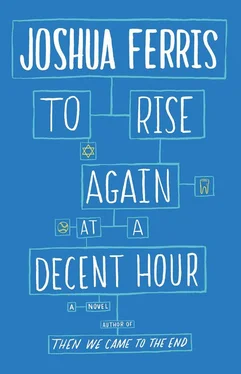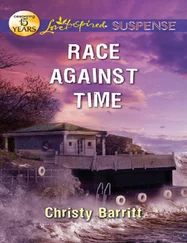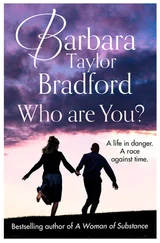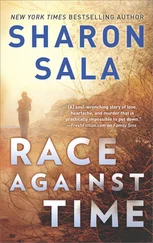The most unfortunate thing about being an atheist wasn’t the loss of God and all the comfort and reassurance of God — no small things — but the loss of a vital human vocabulary. Grace, charity, transcendence: I felt them as surely as any believer, even if we differed on the ultimate cause, and yet I had no right words for them. I had to borrow those words from an old dead order. And so while it was not a word I used, when I fell in love with Connie and became acquainted with the Plotzes, I felt blessed.
Although I mostly kept myself in check, I did do one or two questionable things. I’ve already mentioned the compliments I handed out at Connie’s sister’s wedding and my enthusiasm dancing the hora. Then there was the time, with Connie just out of earshot, when I impulsively offered her uncle Ira and aunt Anne free dental care for life.
“Come in anytime,” I said, handing Ira my business card. “You don’t even need to make an appointment.”
Ira turned the business card over, scrutinizing the blank side, before handing it off to his wife.
“I have a dentist,” said Ira. “I need two?”
“The man is just trying to be nice, Ira,” said Anne, who waved off her husband’s remark and thanked me for my offer. “But it’s true,” she added. “We’ve been seeing the same dentist for twenty years. Dr. Lux. Do you know Dr. Lux?”
I shook my head.
“There’s no reason you should, he’s in New Jersey. They don’t make them any finer than Dr. Lux.”
“Well,” I said, “consider it a standing offer. You might need someone in an emergency.”
“If I had an emergency,” said Ira, “I’d call Lux.”
Anne frowned. “What he means to say is thank you,” she said to me.
Around that time I started studying Judaism. I would go to the library and read whenever I had the chance. It was never stories of the Romans (too remote) or the Nazis (too familiar) that got to me, but episodes of a smaller scale: a handful of Jews falsely accused of something absurd and killed and all their earthly goods immediately converted into cash by the local clergy; fifty Jews burned on a wooden platform in the cemetery, and their cries reported clinically in a Christian’s journal; children taken out of the fire and baptized against the will of their mothers and fathers who were forced to watch as they burned. The world never seemed so wicked, so rabid, or so diseased, as in the pages of the history of the Jews. The world never seemed so irredeemable. And I’d want to say something to someone about it, something inadequate and likely to go over as well as my misbegotten attempt to connect with Bob Santacroce over anti-Catholicism, which, in the context of the history of anti-Semitism, was a luncheon on a riverboat. I wanted most of all to say something to Connie’s uncle Stuart. I don’t know why. His dignity, maybe, his prepossession. The strange impression he gave of eating very little, of having transcended food, of finding nourishment in other, higher-order things, in Torah and in silence. But I resisted these urges. Connie’s uncle Stuart didn’t need my apologies for historical injustices for which I could not reasonably be held to account. And I didn’t want him to think I was attempting to apologize or that I was pitying him and all the Jews that came before him. I just wanted him to know that I knew. But what did I know, exactly? Even if I knew everything — absolutely everything of Jewish history, Jewish suffering, Jewish theology, which was impossible — so what? I could go up to Uncle Stuart, I thought, and say, “I’ve been reading about the Crusades,” or “I’ve been reading about the pogroms,” or “I’ve been reading about the forced conversions.” But would I be saying something about the Crusades, the pogroms, and the forced conversions, or only something about myself? I suspected that, just as I had so earnestly done earlier with Bob Santacroce, I was really only saying something about myself. Unlike Bob Santacroce, however, Stuart Plotz gave a damn. I was afraid I’d start in soberly on these subjects, and Uncle Stuart would hear only, “The Crusades, hey! The pogroms, hey! The forced conversions, wow!” as if it were some kind of hit parade of outrage easy to be on the right side of at this late stage in history. I had vowed to keep a leash on my romantic empathies, and the history of anti-Semitism, the expulsion of Jews from France and Spain and England, the death of millions in the Holocaust — their magnitude encouraged that restraint, made it an imperative.
Then one night at a birthday celebration for Theo, a cousin of Connie’s, I made an error.
It’s not strictly true that I’ve been an atheist my whole life. Before my dad died, my parents were very indifferent parishioners of a Protestant church we attended maybe a handful of times, with no operating principle behind when we did or did not attend — except for one time when I was eight and we went six consecutive weeks, including Sunday school and Wednesday potlucks. It was my father’s idea, one of his lurching efforts to avoid an accident by running us all off the road. It was probably suggested to him that God was the answer to what ailed him, including his tendency to bring home all the irons for sale at the Sears and then stand over the sink and cry while my mom returned them. (Picture me during these episodes watching him from a healthy distance, as puzzled by adult behavior as I was unsettled by his crying.) Then, after his death, my mom, in what I imagine now to be one of many desperate attempts to organize her response to the inconceivable, cycled through a series of churches — the Baptist church, the Lutheran church, the Episcopal church, the Assemblies of God church, and the Disciples of Christ church, vanilla churches and evangelical churches, churches preaching damnation and churches preaching donation… and then back home again to sit on the sofa and mourn in the everyday way of most Americans: in the communal privacy of the TV.
During that time, however, I came to learn, from women who bent down and put their hands on their knees, from men in black who were always stacking chairs, and from old deacons who encouraged me to climb into their laps, that God was alive and present and looking over me. God was almighty and kind and took away all bad things. He had sent His Son, Jesus Christ, to die for our sins, and Jesus would love me if only I let Him. If I loved Jesus with all of my heart, He would give me my dad back in a sweet place called heaven. Dad’s wounds would be healed and his sins forgiven. He would never again know sadness, Mom would love him and never cry, and in the afterlife the three of us would never be parted. And because I wanted to believe it so badly, for a time I believed.
It was around then that I learned a thing or two about Martin Luther. During Sunday school we were encouraged to consider Luther a kind of hero, the man who stood up to the pope and took back the Bible on behalf of the people. If I thought less of him during the brief time I sided with the Catholic Santacroces, I came to understand that Luther’s legacy was no less than America itself, with all its variegated Protestant creeds. In the context of the Jews, however, Luther was no hero. Luther believed that once he reclaimed scripture from the vice of the papacy and unleashed the full power of the Word at last, the Jews would immediately convert en masse. You almost had to admire the man’s giant ballsack. The Jews had not converted in the presence of Jesus, during the oppression of the Romans and the pillage of Jerusalem, inside the fires of the Crusades, or when Europe’s royalty stripped them of their wealth and sent them and their children to die in exile — but, thought Luther, if I hand them their own personal copy of the Gospels, that’ll do the trick. When the Jews failed to convert, he changed his opinion and sat down to write “On the Jews and Their Lies,” the title of which pretty much summed up his true feelings.
Читать дальше












